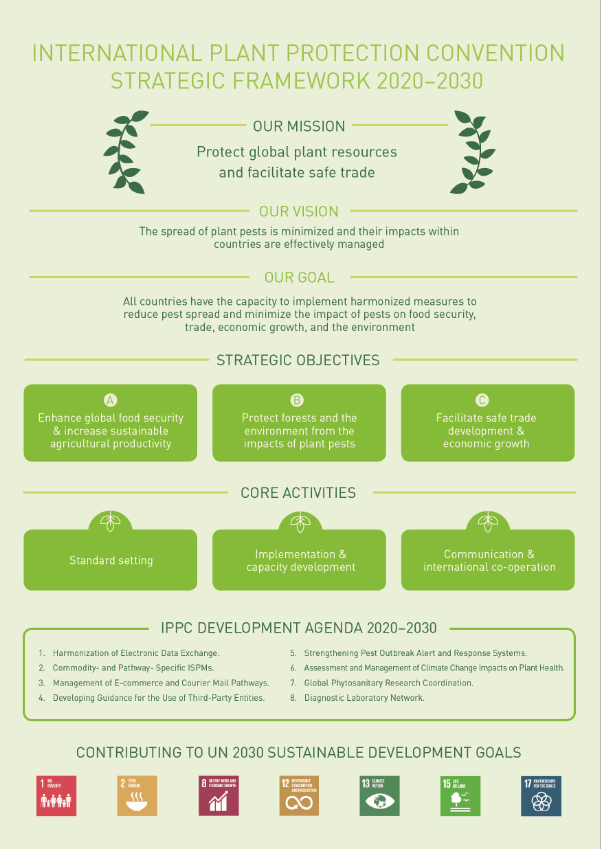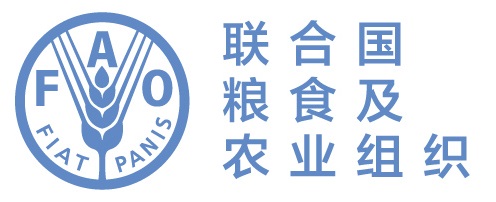IPPC Strategic Framework
As the only international standard setting body for plant health, the IPPC's strategy is to encourage collaboration among countries, to adopt and apply harmonized phytosanitary standards that protect plants from pests and ensure safe export and import of plants and plant products. The IPPC also aims to harness science and technology to protect plant health, promote more efficient international trade in plants and plant products and address global plant health threats such as climate change.
Currently, the IPPC Strategic Framework 2020-2030 provides the “blueprint” plan for the IPPC’s work programme to help contracting parties elevate their phytosanitary capacity by using the right tools and receiving the relevant technical support to advance plant health and respond to existing and emerging phytosanitary challenges. It reflects the strategic mission, vision and goal of the IPPC, and describes the operational elements that will help deliver these aspirations. The IPPC’s strategic framework also aims to boost food security, promote agricultural productivity of a thriving plant health community, improve global trade in plants and plant-based products and contribute to the attainment of the United Nations Sustainable Development Goals.
| 标题 | Files | Publications date |
|---|---|---|
| Previous draft of IPPC Strategic Framework 2020-2030 (superseded) | En | 15 Jun 2018 |
| Drafters' Comments on DRAFT IPPC Strategic Framework 2020-2030 (June 2018, superseded) | En | 15 Jun 2018 |
| Compiled comments - Draft IPPC Strategic Framework (September 2018) | En | 03 Sep 2018 |
| Draft IPPC Strategic Framework 2020-2030 (as presented to CPM-15, superseded) | En | 09 Dec 2020 |

Strategic objectives
- Enhancing global food security and increasing sustainable agricultural productivity
- Protecting the environment from the impacts of plant pests
- Facilitating safe trade, development and economic growth

